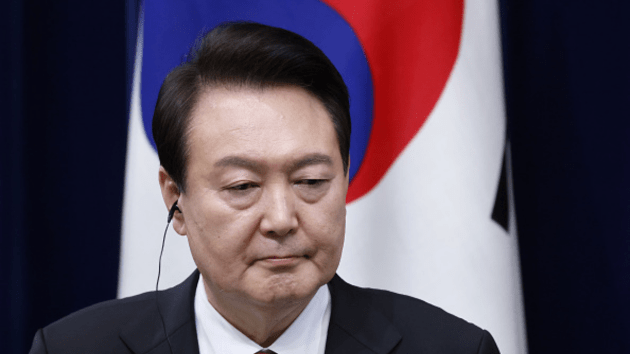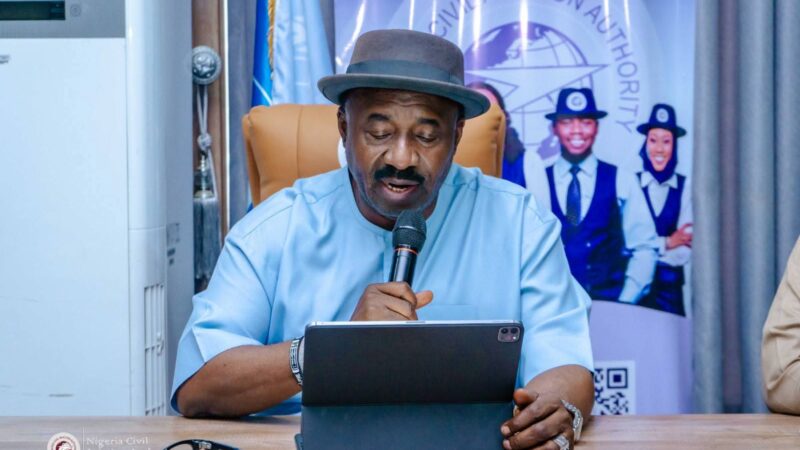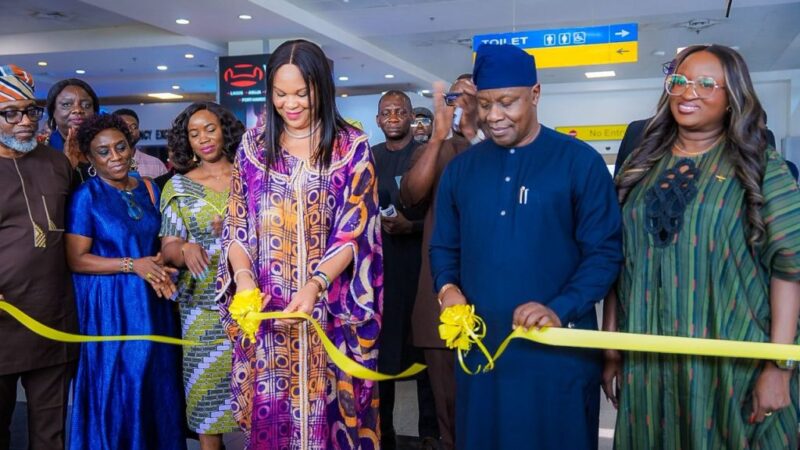South Korea Imposes Travel Ban on President Yoon Suk Yeol Amid Martial Law Controversy

South Korean authorities have placed a travel ban on President Yoon Suk Yeol as prosecutors consider insurrection charges following his failed attempt to impose martial law last week.
The controversial move, which has plunged the nation into political turmoil, was confirmed by the Corruption Investigation Office on Monday.
According to a CNN report, President Yoon narrowly survived an impeachment vote in the opposition-led parliament on Saturday, but his political standing remains precarious.
His party has called for his resignation, urging that he be suspended from duties to shield the nation from what they describe as “grave danger.”
The dramatic sequence of events began with a shocking televised announcement on Tuesday night, during which President Yoon declared martial law.
The move, unprecedented in South Korea’s modern democracy, was met with widespread disbelief and condemnation.
Defiant protesters gathered outside government buildings, demanding the president’s immediate resignation.
In a dramatic standoff, lawmakers forced their way past nearly 300 soldiers deployed to guard the National Assembly.
In a unanimous vote, they overturned the martial law decree, a move legally binding on the president and effectively nullifying his unilateral order.
The martial law declaration, though short-lived, reignited painful memories of South Korea’s past under military dictatorships.
The nation, which endured decades of brutal military rule before achieving democracy in the 1980s, reacted with anger and deep distrust.
On Saturday, President Yoon issued a public apology, his first since the botched martial law attempt.
“This emergency martial law declaration stemmed from my desperation as the ultimate responsible party for state affairs,” he said in a brief two-minute address, acknowledging that he had “caused anxiety and inconvenience” to citizens.
The fallout has extended beyond the president. Colonel Kim Hyun-tae, commander of the elite 707 Special Task Force, apologised on Monday for ordering his troops to storm the National Assembly.
In an emotional briefing, he described himself as “incompetent and irresponsible” for endangering his soldiers. “I instructed my troops to seal the building, engage in physical confrontations, break windows, and enter the premises,” Col. Kim admitted.
“If such orders had been given in combat, everyone would have died. These troops are the most tragic victims of this situation. Their only fault lies in following the orders of an incompetent commander. Please forgive them,” he added.
Col. Kim also accused former Defence Minister Kim Yong-hyun of exploiting the military during the chaotic events.
The ex-minister, who was detained by prosecutors on Sunday, faces allegations of treason alongside other top officials.
A particularly defining moment of the crisis was captured in a video showing journalist-turned-lawmaker An Gwi-ryeong wrestling a gun away from a soldier during the confrontation outside the National Assembly.
As investigations widen, the national police are scrutinising the roles of senior officials involved in the debacle.
Col. Kim has pledged to accept full responsibility, stating, “I will bear the burden for everything they have done.”
South Korea now faces a precarious road ahead, with its leadership in disarray and its citizens demanding accountability for actions reminiscent of a darker era in the nation’s history.







